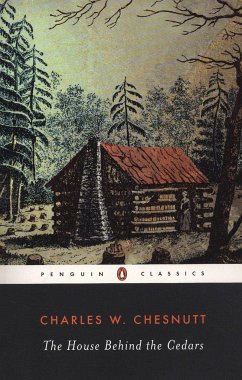
House Behind the Cedars
Versandkostenfrei!
Versandfertig in 1-2 Wochen
13,99 €
inkl. MwSt.
Weitere Ausgaben:

PAYBACK Punkte
7 °P sammeln!
2015 Reprint of the 1901 edition. "The House Behind the Cedars" is the first novel by American author Charles W. Chesnutt. The story unfolds in the southern American states of North and South Carolina a few years following the American Civil War. Rena Walden, a young woman of mixed white and black ancestry, leaves home to join her brother, who has migrated to a new city, where he lives as a white man. Following her brother's lead, Rena begins living as a white woman. The secret of her identity leads to conflict when she falls in love with a white aristocrat who learns the truth of her heredity...
2015 Reprint of the 1901 edition. "The House Behind the Cedars" is the first novel by American author Charles W. Chesnutt. The story unfolds in the southern American states of North and South Carolina a few years following the American Civil War. Rena Walden, a young woman of mixed white and black ancestry, leaves home to join her brother, who has migrated to a new city, where he lives as a white man. Following her brother's lead, Rena begins living as a white woman. The secret of her identity leads to conflict when she falls in love with a white aristocrat who learns the truth of her heredity. The ensuing drama emphasizes themes of interracial relations and depicted the intricacies of racial identity in the American south. Chesnutt's autobiography informed the novel's themes. Being of predominantly European ancestry, Chesnutt was light skinned enough to pass as a white man, although he openly identified with his African-American roots. Needless to say, his portrayal of interracial romantic relations was controversial. Although the novel was critically well received, its controversy contributed to poor financial performance. Remains to this day an important exploration of racism in American fiction.













